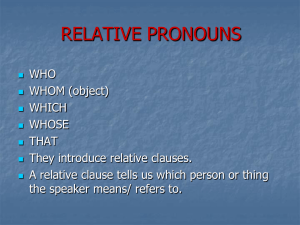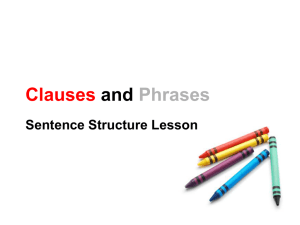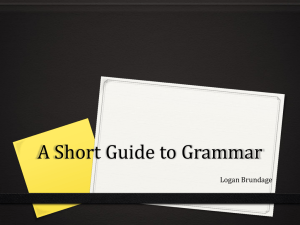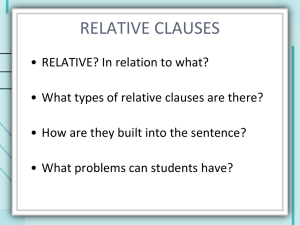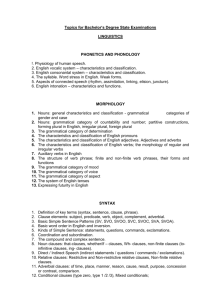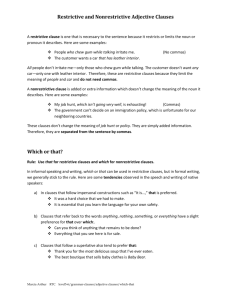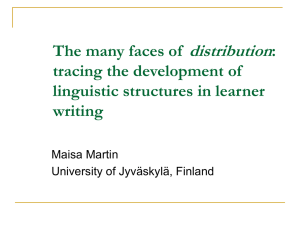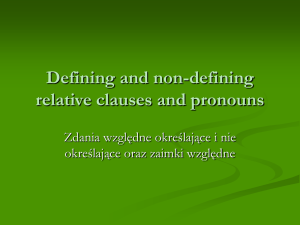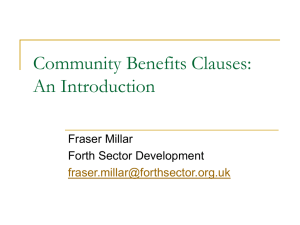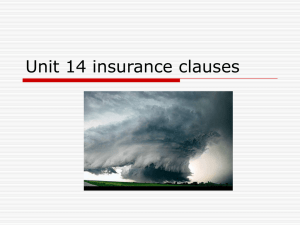RELATIVE CLAUSES
advertisement
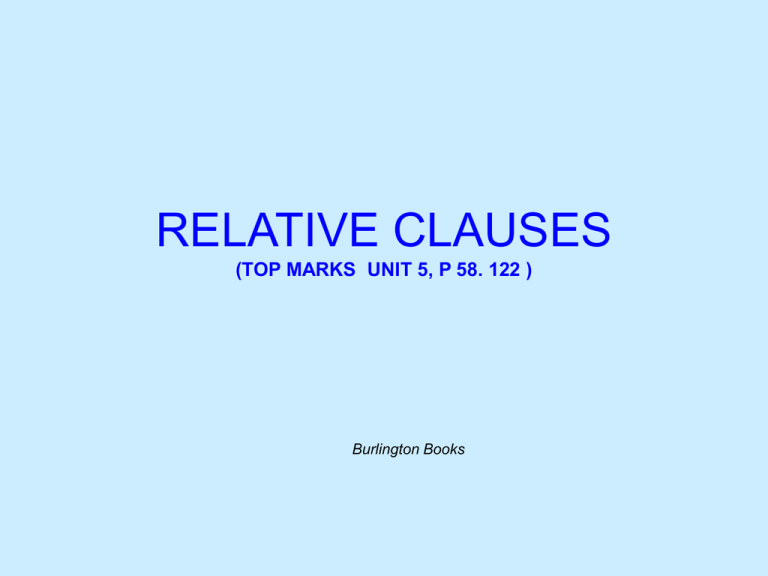
RELATIVE CLAUSES (TOP MARKS UNIT 5, P 58. 122 ) Burlington Books RELATIVE CLAUSES. A.- DEFINITION. a relative clause contains essential or extra information about people or things. B.- RELATIVE PRONOUNS. whose, which, who, when, where, that C.- TYPES OF RELATIVE CLAUSES. - DEFINING RELATIVE CLAUSES: ex: Japan is a country where earthquakes are very common. - NON-DEFINING RELATIVE CLAUSES: ex: Elephants, which are very heavy, can live for many years. RELATIVE CLAUSES. B.- RELATIVE PRONOUNS. whose, which, who, when, where, that -We use WHERE to refer to places. ex: Sri Lanka is a place where people like to go on holiday. -We use THAT / WHO to refer to people / pets. ex: I remembered all the things that my yoga training had taught me. -We use WHEN to refer to time. ex: I´ll always remember the morning when it happened. -We use WHOSE to refer to possesion. ex: The tsunami, whose effects were terrible, will never be forgotten. -We use THAT / WHICH to refer to things. ex: the wave, which was over a metre high, came out of nowhere. C.- TYPES OF RELATIVE CLAUSES. 1.- DEFINING RELATIVE CLAUSES: -contain essential information about people or things. -Relative pronouns: who, which, that, whose, can be omitted if they are not subject of the sentence. -“When” refers to time, “that” can be used, or can be omitted. -“Where” refers to place, it never can be omitted or place by “that”. uses examples WHO / THAT refer to people I talked to a man who / that survived the earthquake WHICH / THAT refer to objects The medicines which / that we´re using are from the Red Cross WHEN refers to a moment in time It was in 2005 when Hurricane Katrina hit New Orleans. WHERE refers to a particular place Japan is a country where earthquakes are very common. WHOSE refers to possesion He´s the boy whose mother saved many people´s lives. DEFINING RELATIVE CLAUSES. When the subject can be omitted?: who , which, that, whose, can be omitted when they are not the subject of the sentence. Ex: He is the doctor (who) I saw on TV subject of the sentence Ex: I talked to a man who survived the earthquake. subject DEFINING RELATIVE CLAUSES. preposition + relative: the relative is omitted, and the preposition comes at the end of the sentence. Ex: I saw the car crash everyone is talking about. (Vi el accidente de tráfico del que habla todo el mundo) Ex: Animal behaviour is a topic scientists are interested in. ( El comportamiento animal es un tema en el que se interesan los científicos) C.- TYPES OF RELATIVE CLAUSES. 1.- NON- DEFINING RELATIVE CLAUSES: -Contain extra-information about people a things. -who, which, whose, when, where, and the relative can´t be omitted. -They go between commas. uses examples THAT can not replace WHO or WHICH My brother, who lives in San Francisco, isn´t afraid of earthquakes. Elephants, which are very heavy, can live for many years
